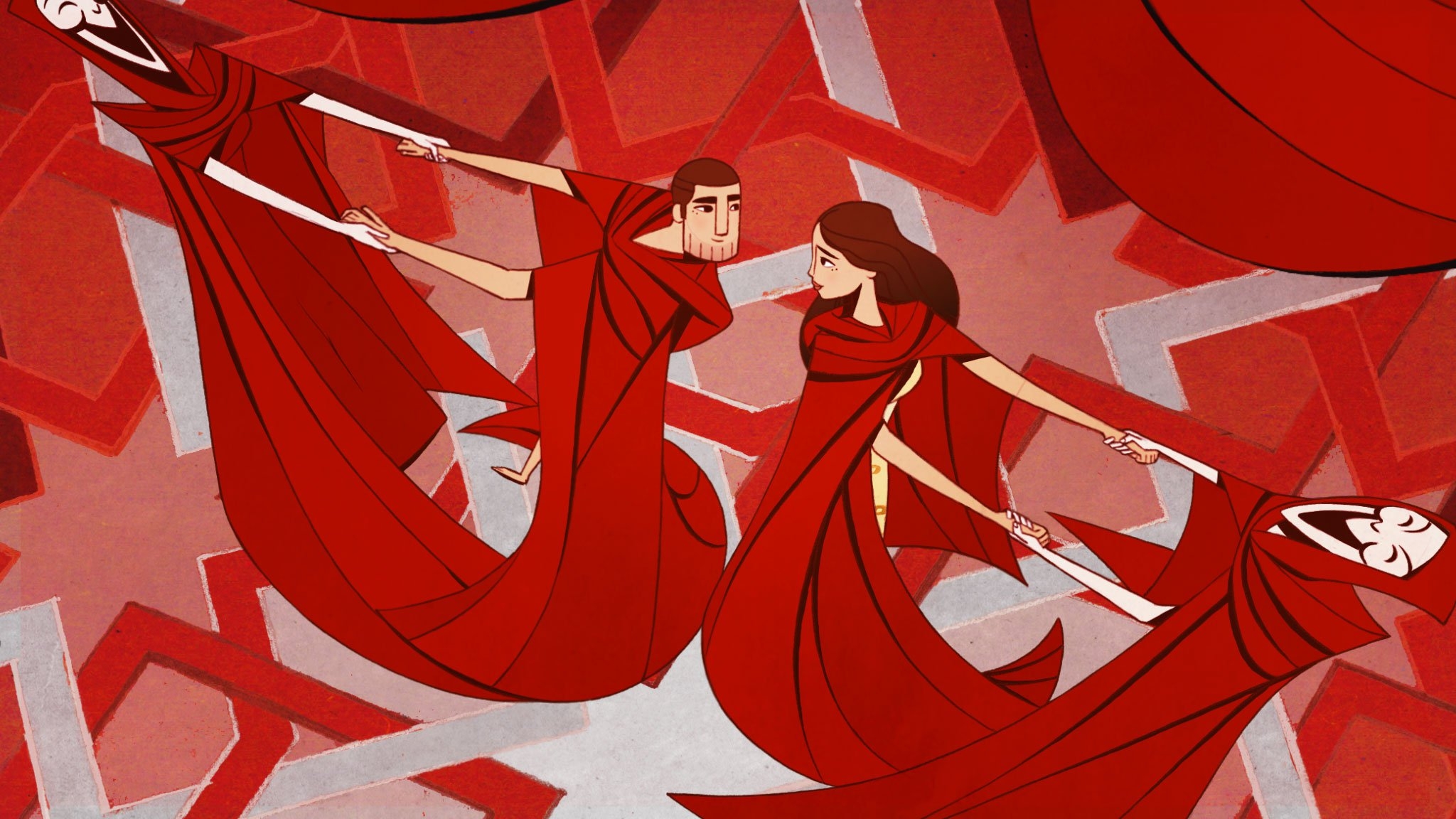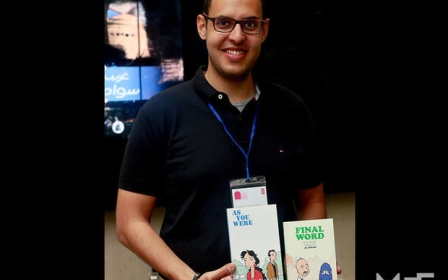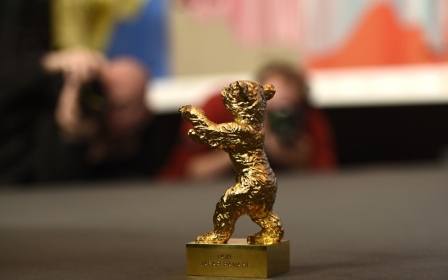Finally, a sweeter side of Arab life in a Hollywood movie

NEW YORK – Arab-Americans have long griped about how Hollywood presents the Middle East and its people.
That trend is being bucked this week, thanks to the actress Salma Hayek-Pinault, her Lebanese grandfather and a mystical book of poetry, prose and parable from the 1920s called The Prophet.
On Friday, an animated version of the text, which was written by the Lebanese-American poet Khalil Gibran, begins playing at movie theatres in the United States and elsewhere.
The 84-minute cartoon gets favourable reviews and has won unusual praise for its cultural import from the Arab American Institute, which normally confines itself to weighty political issues.
“The Prophet offers audiences a glimpse into the contributions that Khalil Gibran and other Arab-Americans have made to US culture and society,” Maya Berry, the institute’s director, told Middle East Eye.
“By celebrating the work, we’re being given the chance to share our heritage with an even larger audience.”
Hollywood has a poor track record when it comes to putting the Middle East on the big screen.
Critics say Los Angeles-based film studios too often stereotype Arabs as billionaires, bombers or belly dancers.
Mazin Qumsiyeh, director of media relations for the American Arab Anti-Discrimination Committee, objected to this “three B syndrome” in his study, 100 Years of Anti-Arab and Anti-Muslim stereotyping.
Director Sut Jhally was so irritated by the villainous depictions of sheikhs and suicide bombers that he made a documentary about it in 2006, called Reel Bad Arabs: How Hollywood Vilifies a People.
Among the starkest examples are such television series as Homeland and 24, which depict Western spies battling Middle Eastern militants.
The Prophet, which has already screened at global film festivals and cinemas in Lebanon and the Gulf, offers audiences a sweeter take on Arab life.
Set in a Mediterranean seaside village, it tells the story of Kamila (voiced by Hayek), who cleans house for the exiled poet Mustafa (Liam Neeson) and raises her mischievous daughter Almitra (Quvenzhané Wallis).
The trio’s journey, and Mustafa’s bid to return home, flows through segments rendering Gibran’s poetic themes of love, work, freedom and marriage, backed by tunes from the cellist Yo-Yo Ma and other musicians.
The movie breaks down into chapters, each was devised by a different director.
One was Mohammed Saeed Harib, the creator of Freej, a 3D cartoon show from the United Arab Emirates about a raucous bunch of irreverent matriarchs that has been likened to The Simpsons.
According to Haytham Nasr, the film’s Lebanese producer, The Prophet was made without overt political motives.
“We weren’t doing this to show the world a great region with so much more to offer that what is seen in 24 and Homeland,” he told MEE.
“For me, it was more than that. It was about bringing Gibran’s work and achievements to the big screen and getting a new generation of people exposed to his writings and spiritual teachings.”
Gibran, a Maronite Catholic who migrated to the US with his family aged 12, is praised for a non-judgmental spiritual ethos that is compatible with Judaism, Christianity, Islam and secularism.
“In this modern age with issues like the Islamic State, people have all these beliefs based on religion,” said Nasr.
“One of the things Gibran said was: ‘Pity the nation that is full of beliefs and empty of religion’.”
The book, published in 1923, has never been out of print. It has been translated into more than 50 languages and is a staple on global best-seller lists and is thought to have sold tens of millions of copies.
Though largely ignored by Western academics, Arab scholars marvel at Gibran’s ingenuity and the book boasts such fans as The Beatles, Indira Gandhi and John F Kennedy as well as legions of hippies from the 1960s.
Hayek, also a producer, got involved with the film because of memories of her Lebanese grandfather, who kept the book at his bedside, she said.
“Through this book I got to know my grandfather,” she told reporters in Beirut in April.
“Through this book I got to have my grandfather teaching me about life. For me, this film is a love letter to my heritage.”
Hayek is sticking with the region. Her upcoming thriller, Septembers of Shiraz, sees her star alongside Adrien Brody as the matriarch of a family crumbling in the wake of Iran’s Islamic revolution of 1979.
While The Prophet is much-loved, it does not lend itself readily to the big screen.
“One of reasons we decided to go with an animation is because translating the script into a feature movie with actors was going to be extremely difficult,” Nasr told MEE.
“As an animation, you can take people in and out of different worlds, with the writing and words going on in the background, making it a lot more powerful.”
Its main director, Roger Allers, who made his feature-film directorial debut with The Lion King, was inspired to interpret the book’s “poetry and insight”, he said in a statement that was emailed to MEE.
“My role has been to create a larger narrative out of Gibran’s slim story and edit his poetic chapters back into the flow,” he said.
“I have done so with all reverence to Gibran’s philosophy and also with his desire to unify all peoples of different faiths and backgrounds.”
New MEE newsletter: Jerusalem Dispatch
Sign up to get the latest insights and analysis on Israel-Palestine, alongside Turkey Unpacked and other MEE newsletters
Middle East Eye delivers independent and unrivalled coverage and analysis of the Middle East, North Africa and beyond. To learn more about republishing this content and the associated fees, please fill out this form. More about MEE can be found here.




